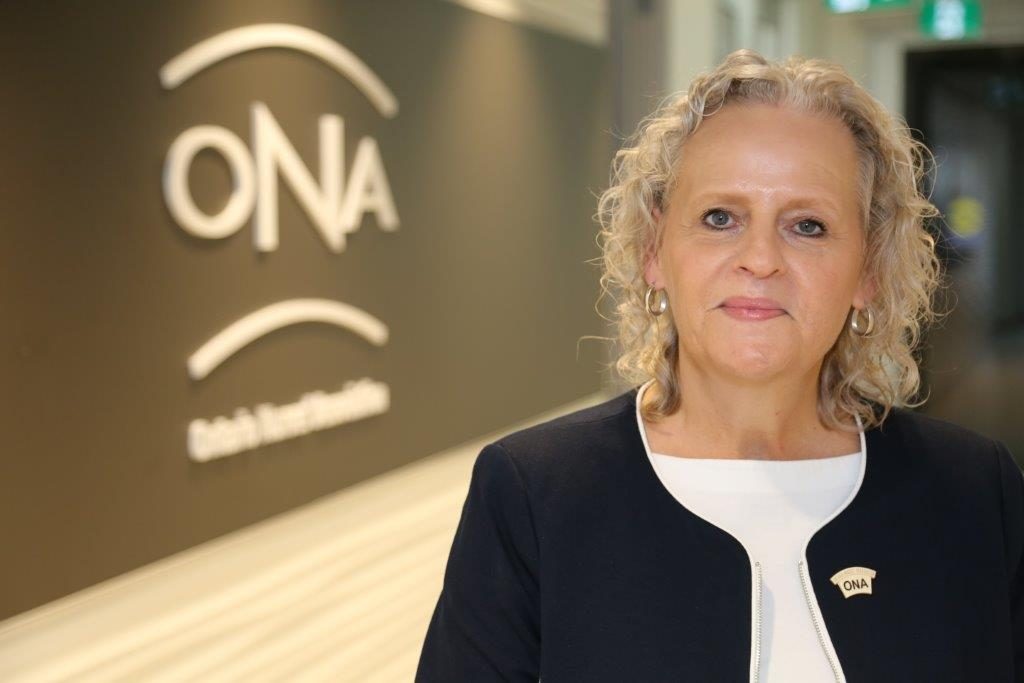
OPINION: Violence against nurses is unacceptable
By Vicki McKenna
Features Health Care Opinion Canadian Federation of Nurses Unions Ontario Nurses Association vicki mckenna Vicki McKenna, president, Ontario Nurses’ Association
Vicki McKenna, president, Ontario Nurses’ Association Like many Canadians, Ontario’s frontline registered nurses (RNs) and health-care professionals are concerned about the safety of our publicly funded and delivered health-care system.
But unlike many Canadians, these dedicated care providers are increasingly concerned about their own personal safety — and that of their patients.
Violence in health care is on the rise.
Violent incidents causing lost-time injuries have increased by 27 per cent over a four-year span (2013-2016). Every expert agrees that the majority of workplace violence in health care goes unreported, as employers and RNs themselves often mistakenly believe that violence is simply part of job.
In the run-up to this year’s federal election set for Oct. 21, the Ontario Nurses’ Association (ONA) has joined with the Canadian Federation of Nurses Unions (CFNU) in calling on federal party leaders to implement a national anti-violence strategy.
Nurses vote, and we want safe workplaces. After all, when nurses are safe, patients are safe.
As part of ONA’s ‘Nurses Vote’ campaign, we have held two roundtable discussions on workplace violence.
The first, held in Newmarket, Ont., enabled local federal candidates to hear the stories of frontline RNs. Newmarket’s Southlake Regional Health Centre is the site of an attack that left an RN and security guard critically injured.
Yet, little meaningful action has been taken to keep others safe.
The second roundtable was held in Ottawa this week, with ONA members recounting their stories to federal candidates, wanting to know candidates’ strategies for safe workplaces.
It is unacceptable that on a daily basis, nurses are kicked, punched, grabbed, thrown to the ground and struck.
Our members are there to care for patients, not to become patients themselves.
What can be done to stop workplace violence in health care?
A plethora of research shows the simple steps that can be taken, including flagging potentially violent patients, providing education on de-escalation techniques to defuse danger and bring up staffing levels to prevent patients from becoming frustrated at long waits.
ONA and CFNU are calling for the federal government to amend the Criminal Code. Simply put, if a nurse is assaulted, the perpetrator should be charged.
Health-care workers are four times more likely to be the target of workplace violence than any other professional, according to the federal government’s Standing Committee on Health.
Action must be taken. Our patients and front-line caregivers deserve it.
Vicki McKenna is the president of the Ontario Nurses’ Association, which represents 65,000 registered nurses and health-care professionals as well as more than 18,000 nursing student affiliates. They provide care in hospitals, long-term care, public health, community care, clinics and industry.
This article originally appeared on ohscanada.com, an Annex Business Media publication.
Print this page
Advertisement
- Retail Secure: Prepare for the possibility of an active shooter event
- Canada Post resetting online account passwords after data compromised
As an Occupational Health and Safety Consultant with over 30 years’ experience, I wholeheartedly agree with Ms. McKenna. Hospitals are amongst my clients and I have friends working as nurses in these facilities. All the fancy signs on the wall do squat when the medical professionals; facility management and politicians don’t respond with conviction. The overwhelming response is “well that is a normal part of your job”. Since when does being spit on, being hit and slapped, knocked against the walls and equipment and the verbal abuse become a “normal part of the job”? Assault is still assault and a chargeable offence. There are still numerous hospitals where there are no security staff provisions.
The same issues face the Personal Support Workers (PSW’s) and Teachers. Inadequate staff, security and lack of vigorous response to these assault type issues have left the both worker groups at risk. There many publicly reported instances of PSW’s having to deal with violent clients, inadequate staffing and training. In the school system, children in Junior Kindergarten have learned from their siblings that spitting hitting, kicking and screaming are totally acceptable behaviour. That behaviour continues as the children move up the grade levels. Unfortunately the education system management team comes from the unions and the individuals are still members of those unions. Have they forgotten their roots?
It will take major political will and positive action to force the necessary changes in all those workplaces.
There has always been a mind set among health care professionals that self defense is not optional in a clinical setting. I disagree however and believe it is necessary at times and with utmost caution.
Front line staff are constantly at risk when dealing with impaired clients who become physically violent.
The Criminal code is specific that people have a right to defend themselves and just as specific to not use excessive force.
Staff have the right to lay charges via their local Policing agency. This most certainly includes health care professionals.
Most health care facilities utilize Code White for violent incidents .The arrival of EXTRA staff may deescalate the situation.
What may be more advantages is more focused education for HCP in crisis intervention including the emphasis on employee right to have police contacted.
Certainly all situations must take into consideration the complexity of the patient population being served and inherrent associated risks.There is however no better Risk Management than a well trained and fully equipped Security Force.